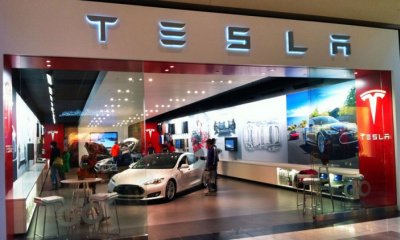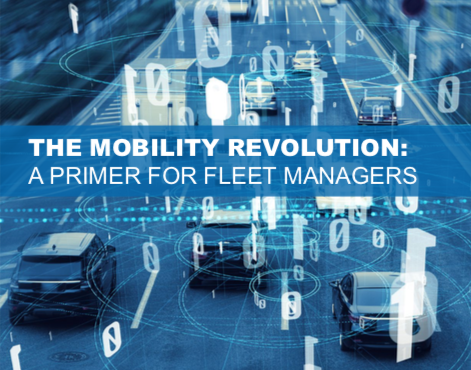Ride-hailing firms going public: Uber and Lyft, the top rivals for the U.S. ride-hailing  market, are engaged in another race to see who can launch a successful stock market public offering first. While Uber went through disastrous upheaval not long ago, CEO Uber Dara Khosrowshahi, who took over a little more than a year ago, appears to be reviving the ride-hailing giant. Uber may be getting a 2019 offering at a $120 billion valuation, far above recent private market levels. Lyft, meanwhile, could find a public valuation of over $15 billion, which is much closer to IPOs than what some analysts expect Uber to find next year in initial market value.
market, are engaged in another race to see who can launch a successful stock market public offering first. While Uber went through disastrous upheaval not long ago, CEO Uber Dara Khosrowshahi, who took over a little more than a year ago, appears to be reviving the ride-hailing giant. Uber may be getting a 2019 offering at a $120 billion valuation, far above recent private market levels. Lyft, meanwhile, could find a public valuation of over $15 billion, which is much closer to IPOs than what some analysts expect Uber to find next year in initial market value.
Musk going to Mars: While 2018 is turning out the worst of times for Tesla CEO Elon Musk, things are looking brighter on the space transport side of the business — with his grand vision of taking passengers to Mars. His SpaceX company’s Big Falcon Booster will see a factory being built in the Port of Los Angeles, 15 miles south of the company’s headquarters in Hawthorne. SpaceX is getting a lot of support for its Mars mission from NASA, along with contracts for cargo delivery. Another federal agency, the Securities and Exchange Commission, has taken a dim view of Musk, but that’s getting worked out with a federal judge approving Musk’s settlement with the SEC. Musk’s mission to Mars goes back before he came over to Tesla. In 2002, he founded the space travel and exploration company through his frustration that NASA wasn’t doing enough to get humans to Mars. It’s typical to see him featured in interviews wearing his “Occupy Mars” t-shirt to get the message across.
Highlights from AltCar Expo: AltCar Expo speakers talked about the key issues that government regulators, fleet managers, automakers, and technology partners are facing deploying clean vehicles and supporting clean fuels and energy in California. The popular ride-and-drive was a showcase for green vehicles of all types, including the debut of Electra Meccanica’s Solo single-passenger electric vehicle. The Audi etron 55 quattro was displayed and discussed in a panel by Audi of America’s Spencer Reeder; and attendees had a preview of the new Chanje V8100 Generation 2 Model of the electric van by the Chinese manufacturer.
Terry Tamminen, who now serves as CEO at the Leonardo DiCaprio Foundation, talked about the lack of clear understanding in the federal government over climate change and its devastating impact from Hurricane Michael and other signs of dire conditions. Former head of California’s Environmental Protection Agency and later Cabinet Secretary under Gov. Arnold Schwarzenegger, Tammimen served as architect of key legislative changes including the Global Warming Solutions Act of 2006, the Hydrogen Highway Network, and the Million Solar Roofs Initiative. He sees California playing a critical role in the future of government policy and supporting growth in clean transportation. The state’s mandate to have 100% renewable energy by 2045, and tapping into more renewables to power the state’s energy grid, are signs of the state’s commitment to fight climate change. The cost of electricity dropping from $4 a watt when Schwarzenegger took office to under $1 a watt now is a sign the economic dynamics are coming together, as well, he said.
Santa Monica city council member, and Innogy e-Mobility US strategy and market development head, Terry O’Day, had a conversation with annual AltCar award winner Phillip Kobernick, Logistics Service Manager for County of Alameda, about the latest in Bay Area developments for clean vehicles and infrastructure. The county’s fleet now has 300 hybrid vehicles and 80 all-electric vehicles in its 1,300-vehicle fleet. Hybrid police patrol cars, motorpools, and car-sharing programs are supporting these efforts, he said. The County of Alameda and other government fleets in the region are tapping into incentives for chargers being purchased and installed, with the county reaching about 1,400 charger locations, he said. Kobernick offered three suggestions for meeting sustainability targets: gaining better data from EV usage patterns, similar to what’s available now on gasoline-engine vehicles; more charging options based on fleet vehicle duty cycles — such as when Level 1 charging can work and nighttime charging; and becoming smart users in the electricity grid — how to work with utilities on avoiding being penalized with extra fees during peak demand periods. He’s also interested in exploring whether battery swapping might work in EVs, such as police patrol cars that don’t have downtime to wait for charging.
Stay tuned for an upcoming video link in Green Auto Market that will show the Friday speakers. That will also include “Is California Past the Turning Point?” moderated by Marco Anderson, Southern California Association of Governments and featuring Clinton Bench of UCLA Transportation, Kobernick, and Ken Reichley of Southern California Edison. “Are Auto Makers Truly Committed to Low- and No-Emissions Technology?” was moderated by Sue Carpenter of KPCC “Take Two” and featured Anthony Luzi of Electra Meccanica and Spencer Reeder of Audi of America. Reeder also discussed where Volkswagen’s Electrify America program will be going in the next couple of years.

 federal judge overseeing the case. The settlement means that CEO Elon Musk will be stepping down as chairman for three years, and that two new independent directors will be appointed to the board. Musk will be paying $20 million, and Tesla will pay another $20 million, in fines distributed to harmed investors. Musk’s insulting tweet last week on Thursday, mentioning that the SEC is changing its name to “Shortseller Enrichment Commission.”
federal judge overseeing the case. The settlement means that CEO Elon Musk will be stepping down as chairman for three years, and that two new independent directors will be appointed to the board. Musk will be paying $20 million, and Tesla will pay another $20 million, in fines distributed to harmed investors. Musk’s insulting tweet last week on Thursday, mentioning that the SEC is changing its name to “Shortseller Enrichment Commission.” the near-term future of vehicles and transportation — connected, electric, shared, and autonomous vehicles. Written by Lukas Neckermann, a former auto executive and consultant on mobility services, and Green Auto Market editor Jon LeSage, the study explores the issues poised to transform transportation in the next decade. It was sponsored by NAFA Foundation as a tool for fleet professionals to prepare for the near future.
the near-term future of vehicles and transportation — connected, electric, shared, and autonomous vehicles. Written by Lukas Neckermann, a former auto executive and consultant on mobility services, and Green Auto Market editor Jon LeSage, the study explores the issues poised to transform transportation in the next decade. It was sponsored by NAFA Foundation as a tool for fleet professionals to prepare for the near future.